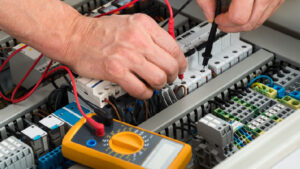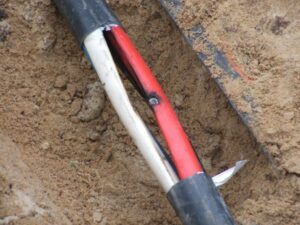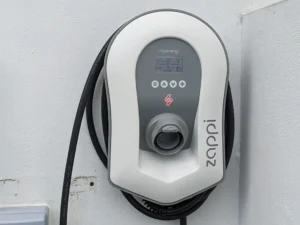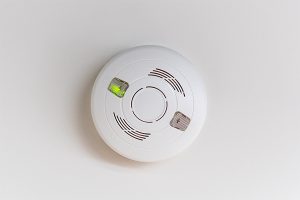It is essential for you to take into considerations a few useful safety precautions when you are working with electricity. These basic guidelines can assist you to ensure the safe handling of electricity.
- Avoid water when you are working with electricity. Water is a conductor for electricity. Therefore, it is vital never to attempt fixing circuits or electrical equipment with wet hands.
- Do not use any appliances or equipment that have damaged insulation, frayed cords or broken plugs.
- Always make use of insulated hand tools while working.

- If you are performing work on a receptacle at home, then make sure that you’ve turned off the mains. It may be of great help to put up a warning sign at the distribution board so that no one turns the mains back on by accident. But you should not make any electrical work without concerning elecetrician. If you are making any electrical change in commercial area then you should take help of commercial electric company. They will handle all your electrical work in profession manner.
- Always wear appropriate personal protective equipment such as insulated rubber gloves and safety glasses while working on electrical circuits.
- Unguarded electrical equipment with the potential of becoming energised unexpectedly usually comes with warning labels stating, “shock risk”. Always be mindful of these labels and make sure you follow the safety rules contained in the electrical code relating to the Country you’re residing in.
- It is crucial always to check that equipment is de-energised before attempting any repairs on it. An electrical tester can show you whether electrical current is active and flowing through a wire. Check all the wiring, the metallic cover on the service pane as well as any other loose hanging wires before proceeding with your task.
- Always use wooden, bamboo or fibreglass ladders when you’re working on heights, fixing receptacles. Never use steel or aluminium ladders.
- Make sure that you’ve familiarised yourself with the wire code of your Country.
- You can consider installing GFCI’s (Ground fault circuit interrupters) in your home, especially damp areas like the kitchen or bathroom. These devices are residual current devices, and their function is to prevent electrical shock hazards. They are designed to disconnect quickly enough before injury can happen as a result of short-circuiting or overcurrent faults.
- Always ensure that you’re using circuit breakers and fuses that have the required current rating. These protective devices are essential as they automatically disengage the live wire in the event of an overcurrent fault or a short-circuit occurs.
- When you’re working on your underground cabling outside, avoid digging with a spade, as you can damage the wiring. Rather dig with your hands while wearing protective insulated gloves.

- Always place a cap on the live/hot wire when working on the service panel. This will ensure that the cable’s copper ends are insulated, preventing an electrical shock when touched by accident.
- When capacitors are removed from a circuit, it is essential to discharge any stored energy. For low voltage capacitors, two insulated screwdrivers can be placed on the capacitor terminals to discharge it. For high voltage capacitors, a 12V light bulb can be connected to the capacitor, so that the bulb drains the remaining stored energy from the capacitor.
Looking for a reliable electrician in Perth?
Contact us today on (08) 9220 5201
Contact us today on (08) 9220 5201








